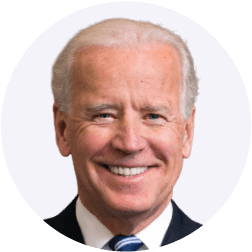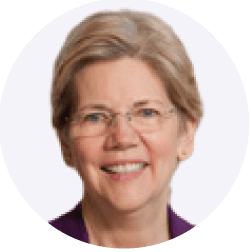Who's leading the polls?
 LIVE
LIVE

Former Vice President Joe Biden  remains the favorite among candidates for the Democratic nomination.
remains the favorite among candidates for the Democratic nomination.
He is followed by Elizabeth Warren  , Bernie Sanders
, Bernie Sanders  , Michael Bloomberg
, Michael Bloomberg  and Pete Buttigieg
and Pete Buttigieg  .
.
The fundraising contest
Amount raised Millions of dollars
Total collected by the candidates from the financial reports submitted to the FEC prior to March 30. Some candidates do not appear because they launched their candidacy at a later date, as in the case of Joe Biden.
In the last quarter, environmental billionaire Tom Steyer  led fund-raising by Democrats with $49.6 million, but the bulk of his funds come from his own pocket. Only 3% is due to small donations. With $28 million gathered in the quarter, Sanders
led fund-raising by Democrats with $49.6 million, but the bulk of his funds come from his own pocket. Only 3% is due to small donations. With $28 million gathered in the quarter, Sanders  ranked second and remains top in total fund-raising since January.
ranked second and remains top in total fund-raising since January.
The businessman Andrew Yang  , who has pledged if he becomes president to give $1,000 a month to all the adults in the country, managed to triple his campaign fund-raising in recent months, mainly with the support of small donors.
, who has pledged if he becomes president to give $1,000 a month to all the adults in the country, managed to triple his campaign fund-raising in recent months, mainly with the support of small donors.
The fundraising reports are an important indicator because they show that there are people who are taking concrete actions to support a candidate, says Elaine Kamarck, an expert on the U.S. primary process.
This cycle has been characterized by large amounts of money from small contributors to multiple candidates. These are followers who contribute less than $200. This is key for campaigns because it lays the foundation for the future, explains Brendan Glavin, an analyst with the Campaign Finance Institute.
“People who donate money are more likely to do something else to support the campaign, they are more inclined to go out and vote. When people donate they feel they have something at stake," he says. In addition, the big difference with the large donors, is that those who have given $20 or $50 can continue contributing because they have not reached the limit of $2,800 dollars in donations per candidate. Thus, campaigns can return to them for more funding during the campaign.
Who has more endorsements?
This ranking gives points according to the support each candidate has received. Not all endorsements have the same weight: the backing of an ex-president, for example, adds 10 points, while that of the mayor of a large city adds 3.
“If a candidate is receiving a lot of backing and support this suggests that his campaign has momentum or the support of party leaders”, says Fernand Amandi, a partner at the public opinion firm Bendixen & Amandi.
It is still too early to know who will be the Democratic Party nominee. Primary elections start on February 3rd in Iowa.
Sources and methodology: hundreds of Democrats have registered their presidential campaigns with the Federal Electoral Commission (FEC) since 2017. Only those who have the experience, recognition, mobilization capacity and/or money to develop a national contest were selected for inclusion in this report. The results of the surveys are displayed in the order they were made and are updated with a list compiled by FiveThirtyEight, a site specializing in data analysis and public opinion polling. The outlet qualifies the interviewers with a system of letters from A + to D-. We only include those who received at least one B-. You can check the full ranking on this page. The candidates announced their campaigns on different dates, but the majority did so in the first quarter of 2019. We include their campaign's financial reports, filed with the Federal Election Commission (FEC).The following experts in political science and public opinion were consulted: Elaine Kamarck, expert in governance studies at the Brookings Institute and author of "Primary Politics: Everything You Need to Know About How America Nominates its Presidential Candidates"; Fernand Amandi, partner with the public opinion firm Bendixen & Amandi, who has participated in multiple presidential campaigns; Brendan Glavin, analyst at The Campaign Finance Institute; and Lynn Vavreck, professor of political science at UCLA. Photos: Congress.gov, Getty Images and campaign websites. Translated by David Adams